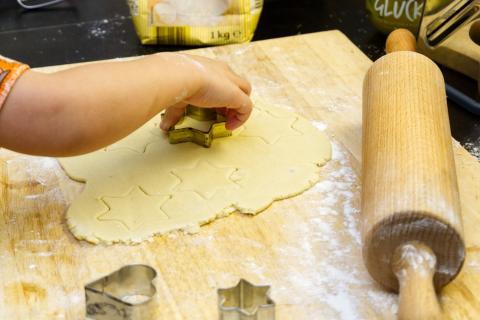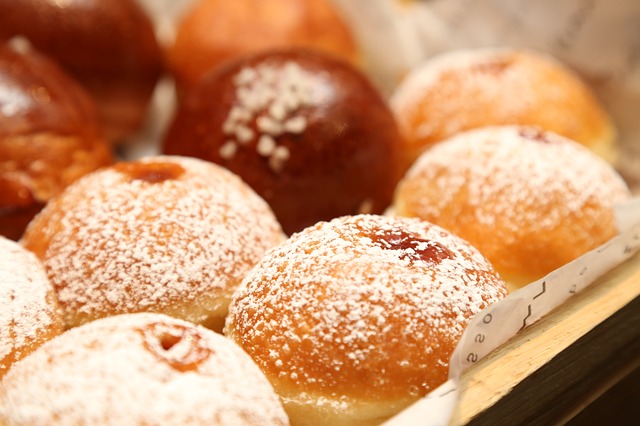Don't Eat That Dough!

Baking is a holiday tradition for many people in New Hampshire. Whether you're making a festive holiday cake, a pumpkin bread for the neighbors or a batch of cookies for Ol' Saint Nick, some quality time in the kitchen can be a fun holiday tradition. But whatever you're baking, don't eat that leftover cookie dough or scrape a spoonful of brownie batter out of the mixing bowl. According to experts, this is a kitchen tradition that bakers should retire so that they don't add a hospital trip to their holiday festivities.
The Centers for Disease Control and Prevention (CDC) recently issued a bulletin warning people that eating and handling raw baking ingredients carries with it a risk of illness.
Why is dough a potential danger?
According to the CDC bulletin, "Flour is typically a raw agricultural product. This means it hasn’t been treated to kill germs like Escherichia coli (E. coli). Harmful germs can contaminate grain while it’s still in the field or at other steps as flour is produced."
Another ingredient in dough and batter that could harbor bacteria is raw eggs. Salmonella is the type of bacteria commonly associated with raw or undercooked eggs. Eggs are safe to eat when cooked and handled properly.
The danger is not limited to eating the contaminated raw dough. It is important to wash your hands and clean up the preparation area where dough has been because bacteria can be carried to other dishes, even ones that are already cooked. Even playing with dough could spread bacteria.
" In recent years (2016 and 2019), two outbreaks of E. coli infections linked to raw flour made more than 80 people sick. "

Handling raw eggs can expose people to Salmonella.
Some baking ingredients and mixes have been recalled.
According to the CDC, "Earlier this fall, Duncan Hines recalled boxes of cake mix in Classic White, Classic Yellow Cake, Classic Butter Golden Cake, and Confetti Cake flavors, with various 'best if used by' dates ranging from March 7 to 13, 2019. The risk is Salmonella that may contaminate the mix. Do not bake with or eat recalled Duncan Hines cake mix, or eat cake prepared with recalled mix." CDC experts recommend tossing old flour and raw baking products that are sitting on pantry shelves with long-past expiration dates.
Is cookie dough ice cream and similar products safe to eat?
Yes. Products that are sold with dough as an ingredient have been treated to kill harmful bacteria.
What should I do if someone has eaten raw dough?
Watch for symptons of E. Coli and Salmonella. Symptoms for both illnesses include diarrhea and abdominal cramps, though symptoms may be more severe in young children, older adults and those with weakened immune systems. If symptoms appear, seek medical attention.
What's the safest way to handle raw dough?
According to the CDC, raw dough or batter should not be tasted or eaten. It should not be used for children’s craft dough. You should follow the recipe or package cooking directions and keep raw foods separate from the ready-to-eat food. Don't forget to refrigerate dough to prevent it from spoiling. Clean up is very important: Wash your hands, bowls, utensils and countertops, and follow CDC safe food handling guidelines.

If baked goods are fully cooked and stored properly, they will be a safe, delicious holiday treat.
Have kitchen question this holiday season? Contact Ask UNH Extension via phone, email or social media.
Call the Infoline 877-398-4769
Revised November 26, 2019
Much of the information in this article was cited from "Say No to Raw Dough!" by the Centers for Disease Control and Prevention.

